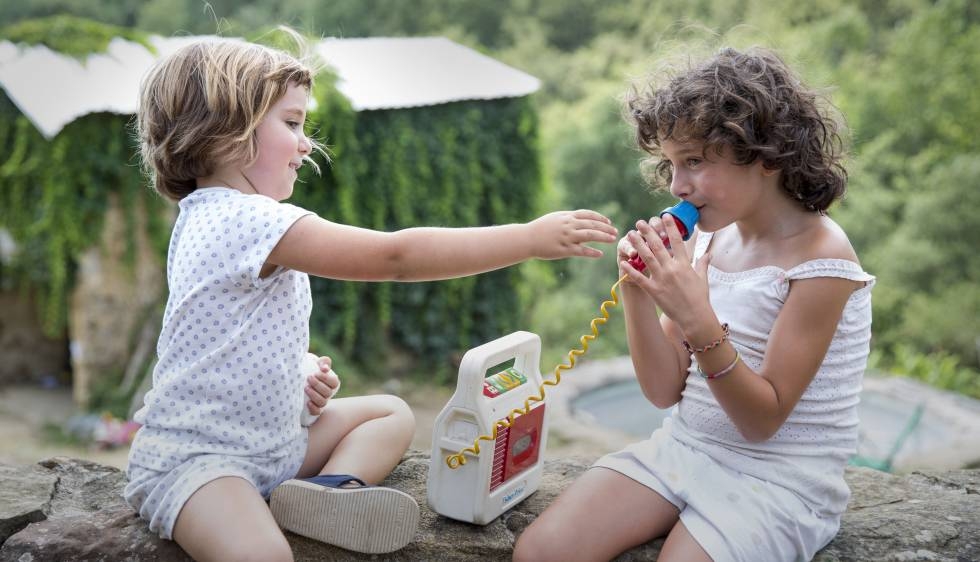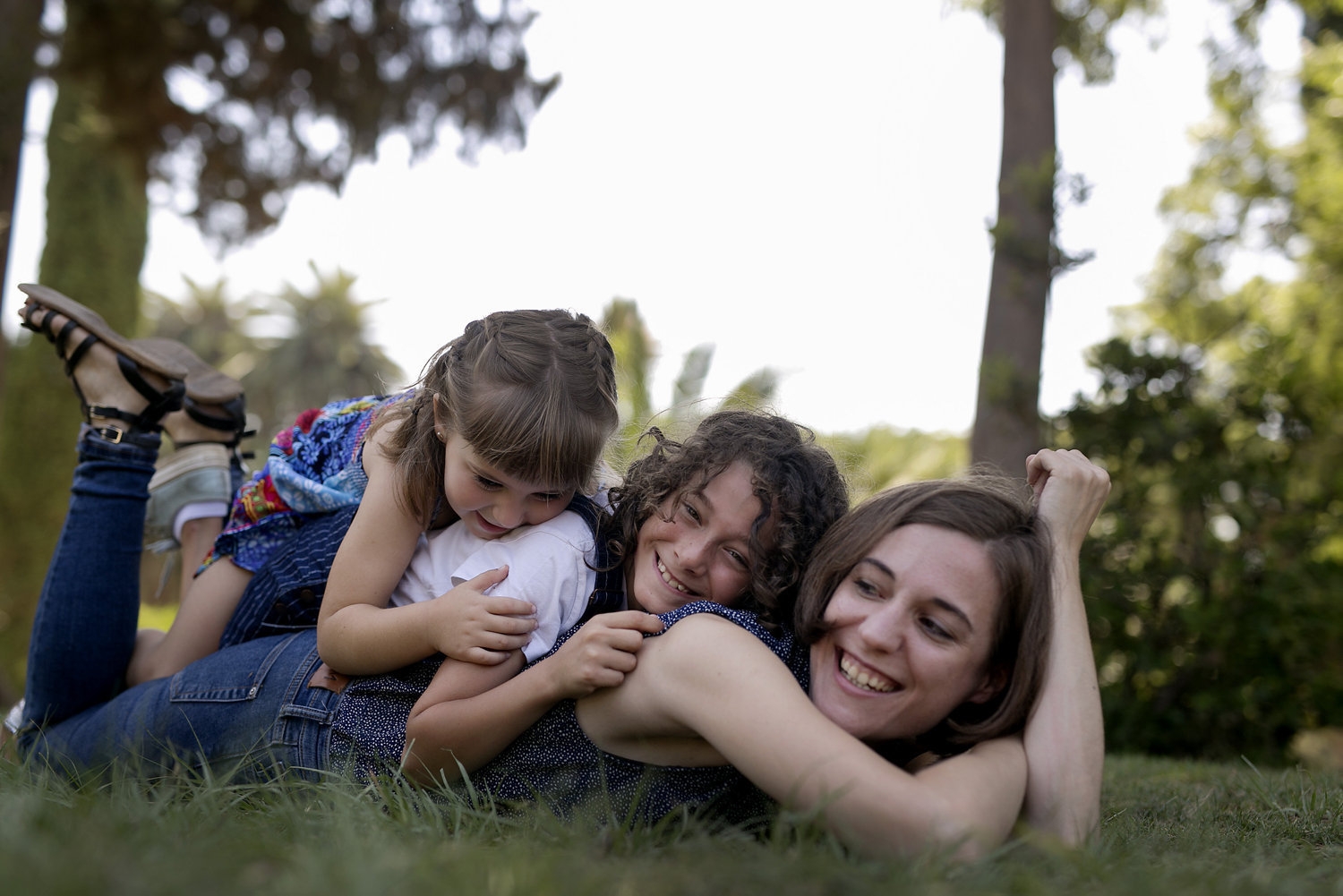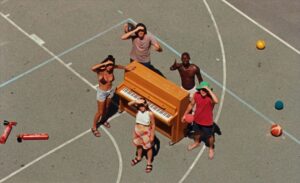
Do you remember those discreet overheard conversations from childhood? Some were hard to sink in. And there are others that remain entrenched for a lifetime. You weren’t the intended recipient in the first place. Then again, how would a child govern his/her own perceptions? Debutante director Carla Simón’s autobiographical Summer 1993 (Estiu 1993 in Catalan) is about a 6-year old Frida (Laia Artigas) who comes to stay with her uncle Esteve (David Verdaguer) and aunt Marga (Bruna Cusí Echaniz). Frida has been orphaned as her mother passes away from an undisclosed disease. New to their stocky house close to the woods, Frida’s “new” parents are considerate. Also giving her company is the endearing Anna (Paula Robles), the couple’s 3-year old daughter.
Set in a quaint countryside home, there is a lot to observe in the backdrop that director Simón opts for. The trees, the steep slope, the closeness to the woods and natural streams, the Mother Mary figurine, the vegetable fields, and the feel of the place being uninhabited – the ‘vacation’ setting appears too convenient a canvas to stage a possibly familiar story. However, the film’s penchant to constantly identify potentials of its own concise atmosphere nullifies this worry.
The crux of Summer 1993 orbits around the parents and the child assuming new roles in each other’s lives. The transition isn’t organic for both parties. Although as a subtext, the film explores a thin line between Marga’s affection and her intrinsic want to be Frida’s ‘mother’. Also very early in the film, you see the young Frida observing her father’s nonchalance towards her. As Marga orders her to finish her glass of milk, Esteve indifferently passes by, sips half the glass, and winks away. In due course, we get a faint picture of the parents’ natural weakness for Anna. “That girl has no morals,” rues a fuming Marga to her husband, only to have it overheard by Frida. You wonder about whom the parents would reach out to first if both children were to suffer a calamity together. Brutal yet important questions, that perhaps the child had to ask herself.

The screenplay dwells on several delicate textures and soft reactions that aren’t very easy to notice or execute. A lot of it depends on the terrific lead actor Laia Artigas’s arresting gazes. Frida knows how her parents are fulfilling their responsibility first, and welcoming her to their family later. In a heartbreaking scene, Frida makes an obstinate demand to go with her grandparents who drop in for a visit. Eventually pulled out of their vehicle, the girl runs after it pleading, “Wait for me…” This isn’t the most pleasant of visuals but it isn’t hard to espouse Frida’s innocent mind.
The last reel is precisely where Summer 1993 confidently asserts itself. The inquisitive Frida queries Marga about her mother’s death, “Why wasn’t I around when my mother was dying?” The mother is half-stunned and half-worried about Frida’s disposition to feel unloved. This is soon followed by the compelling finale that will leave you numb – although it showcases nothing that we hadn’t seen earlier in the film. The timing, the pacing and the performances ace Simón’s layered material on papers. Driven almost fully on the strength of the director’s subtle treatment to this difficult premise and also in the way she handles her child actors, Summer 1993 is anything but manipulative. Neither does it contain sinister family baddies nor the threat of a profound message on parenting, adoption et al. Carla Simón etches out a compassionate tale where every character subliminally seeks empathy as it is a joint journey. Even when the little Anna prevents Frida from fleeing with a simple retort, “But I love you,” we realize how the film is abundant with poignant moments that leave you dumbstruck for not knowing accurate reactions for each!
Rating: ★★★★ 1/2
ALSO READ: ‘After the Storm’ – a truthful picture of life and its unsaid miseries

